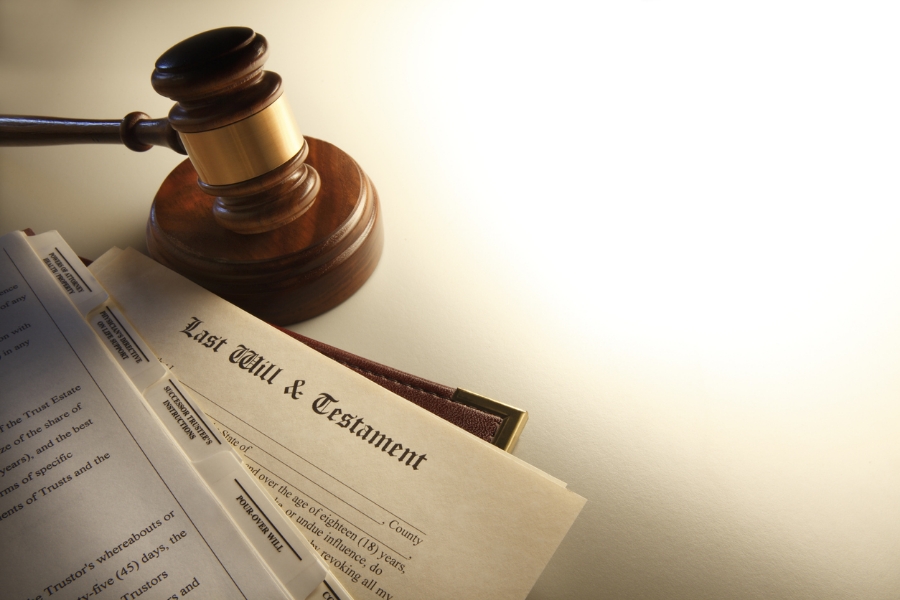You have been named as executor of a loved one's will. What does that entail?
You might feel honoured to be named the executor of a person’s estate. After all, it is an indication of the high regard and level of trust that the testator feels for you. However, it is a demanding, time consuming and often complicated role.
Acting as the executor of an estate involves dealing with all the legal, fiduciary and tax implications arising out of the person's death, as well as coping with the financial and emotional needs of beneficiaries. And if the deceased person is a loved one, the role becomes even more difficult because you will be dealing with your own grief and loss as well.
To aid you in properly carrying out the duties of an executor, we have put together a list of the duties that are most often required from an executor. But be aware that this list is not exhaustive. Other tasks may be required, depending upon (i) how complicated the deceased's estate is, (ii) where the property is located, and (iii) the marital and family status of the deceased (e.g., divorced, step-children, disabled dependents, etc).
10 things you will be required to do as an executor.
1. Find and read the will, and organize funeral arrangements. Locate the deceased's will and read it over to familiarize yourself with their wishes and instructions. As soon as possible after that, arrange a meeting of the deceased's immediate family (and, if appropriate, include close friends or business associates). The meeting should discuss funeral arrangements, and identify and locate important documents and items such as banking and tax records, stocks and other securities, insurance policies, safe deposit boxes, title deeds, etc.
2. Determine the location of all estate assets and property. Make a list of everything and ensure that all assets (real property, personal property and funds) are protected and sufficiently insured. If the deceased was a business owner and there is no one available to take over managing the daily operations, you will have to hire a qualified manager on an interim basis to manage the business during the estate administration period.
3. Probate the estate. You may need to consult a lawyer to help you through the process, depending on the complexity of the estate. Probate will not be necessary (i) if all estate assets are jointly owned with right of survivorship, (ii) if the estate assets are held in a trust, or (iii) in some jurisdictions, if the estate is considered a "small estate". Any assets that have named beneficiaries (such as life insurance or registered investments) bypass the estate and are not probated.
4. Advertise for creditors. This is essential if the deceased is the sole owner of a business. Place a notice in a local newspaper with the name of the deceased, date of death and your contact details, so that any creditors who have an interest in the estate assets have an opportunity to come forward and make a claim. If you fail to do this and a creditor turns up after all the money has been distributed, you will be responsible for paying the debt.
5. Transfer all of the deceased's property into your name. As the executor of the estate, you are entrusted with the power and authority to dispose of the estate assets. You will need to deal with financial institutions, brokers, transfer agents, and land titles offices to transfer title deeds into your name first, before you can distribute the assets to the beneficiaries. This ONLY applies to property that is not jointly held with rights of survivorship.
6. Arrange for payment of all of the estate's legally enforceable debts, including funeral and probate costs. All of the debts must be paid out or the funds allocated to pay such debts, before any distributions are made to beneficiaries.
7. Prepare the deceased's final tax return. If you are not familiar with the tax laws related to estates, you may want to consult an accountant for expert advice.
8. Create any trusts provided for in the deceased's Will. A trust is a legal arrangement that requires assets to be held by a Trustee for a specified period of time - typically this will be when a minor beneficiary reaches a certain age. The income may be paid out or accumulated for distribution to the beneficiaries once the trust conditions have been satisfied.
9. Arrange for payment of legacies and distribution of the estate residue to the beneficiaries. This cannot occur until all estate debts are paid but in general, if the estate is not overly complicated the distribution will usually occur within the first 12 months following the death of the testator.
10. Keep complete and accurate records of everything you do. You may be required to produce these records as evidence if anyone contests the will or questions your actions as an executor.
Image by Carolyn Booth from Pixabay




